
In the parking lot of a Metro by T-Mobile store tucked in the heart of Boyle Heights, just miles from where generations of Mexican families have celebrated quinceañeras, baptisms and Liga MX wins—Mexican soccer legend Oribe Peralta leaned into a crowd of fans for selfies, handshakes and impromptu interviews.
At first glance, it might have looked like a corporate public relations event. But what happened that Friday afternoon carried far more weight. It was a reunion—a communion, even—between one of Mexico’s most iconic players and the people who grew up seeing themselves in him.
"The connection is what soccer generates," Peralta told CALÓ News in Spanish. “Hispanics have that passion for soccer and I think this goes beyond soccer. I have the opportunity to, thanks to Metro, live with many people off the field and that connection seems to me to be what transmits that passion to the people.”
To understand why this moment matters, you have to understand who Oribe Peralta is to Mexican fans on both sides of the border. Born in Torreón, Coahuila, and affectionately nicknamed El Hermoso, Peralta didn’t rise to stardom overnight. He spent years as a journeyman striker across clubs like Morelia, León and Monterrey before exploding onto the international stage with Santos Laguna and later Club América. It wasn’t until the 2012 Olympic Games in London, when he scored both goals in Mexico’s 2-1 gold medal victory over Brazil, that he was elevated to folk hero status.
But in Los Angeles—home to the largest Mexican community outside of Mexico City—Peralta is more than a stat sheet. He is nostalgia personified and a reminder of persistence. He is proof that effort, not privilege, can still open doors. And in a time when immigrant communities across Southern California are facing increased federal scrutiny, Peralta is also a symbol of pride.

“What I can tell you is that all my support is with them,” Peralta said when asked about immigrant communities targeted by ICE and federal immigration agents “That we would like things to be different. Unfortunately, there are decisions that it is not up to us to make. All the support we can show them is great affection—to return that affection and admiration for all the people who struggle day by day, who make this country in better conditions, who work to also get out of those conditions in which they had to work. So I tell you that I deeply admire you and that you have all my support and respect.”
That message—humble, heartfelt and deeply personal—stood in contrast to the high-gloss visuals of the event’s backdrop. Branded soccer balls, giveaways and bilingual signage adorned the pop-up space where Peralta met fans. The partnership with Metro by T-Mobile was part of a larger campaign to bring the Liga MX experience to U.S. audiences ahead of the Campeón de Campeones match.
Yet despite the corporate packaging, the message resonated. Peralta wasn’t here just to promote a brand. He was here to embody it. Metro by T-Mobile, a carrier known for serving working-class and immigrant communities, has increasingly leaned into its Latino marketing strategy—not just with Spanish-language ads, but by aligning with figures like Peralta, who hold real significance in the community.
And in that way, the partnership works not just as a promotional effort but as a cultural connector.
“Knowing that Metro is doing different things so that fans are more and more rooted in that Latin connection that we all want,” Peralta added. “That connection seems to me to be what transmits that passion.”
In this moment, when international soccer is at a crossroads, with increasing scrutiny around player treatment, equity and representation, Peralta also offered perspective on how to build a more dignified future for the next generation of players.
“Football is a sport of a lot of dedication, of a lot of work from a very young age,” he said. “You have to bet everything on that dream. And I think that today the leagues also have to see the people—not only the players but the fans—make them have more connection, so that it's easier for them to see [the game], and also the fact that a lot of young players are emerging. [We need to give] them that courage to do great things and be able to contribute to those teams that they're involved in.”
It’s a sentiment that resonates across borders: communities of color, especially Latinos, often lack access to the infrastructure and support systems necessary to succeed in elite sports. But when someone like Oribe makes it—and returns, not just as a star but as a supporter—it creates a ripple effect.
That ripple was evident in the crowd. Entire families showed up—kids in soccer jerseys, dads in baseball caps, abuelas holding Tupperware of snacks. Some had watched Oribe win gold in 2012; others were born after. All of them felt something unspoken: that this wasn’t just about a game or a brand. It was about being seen.
While the Campeón de Campeones match would take place at Dignity Health Sports Park a few days later, for many fans, the real win had already happened in Boyle Heights. It was a reminder that the biggest stars often come from the humblest beginnings—and that the most meaningful partnerships are the ones that make space for people to show up as themselves.
For Peralta, that connection—between player, community and culture—is why he continues to show up, even after retirement.
Because for many Latinos in Los Angeles, Oribe Peralta isn’t just a legend on the field. He’s family.

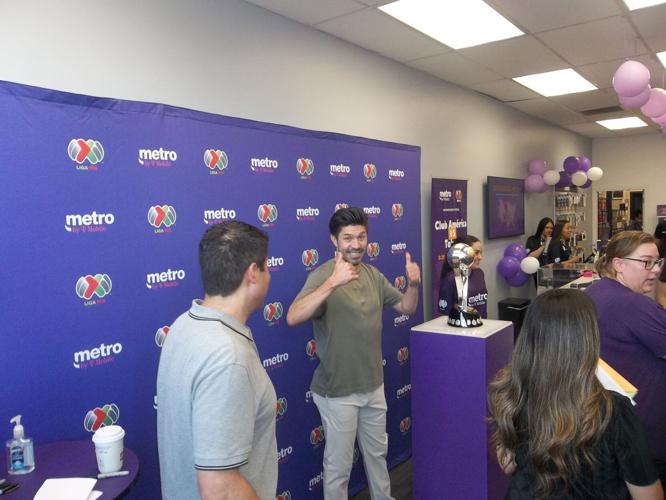
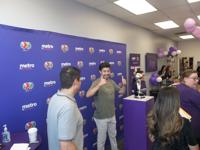
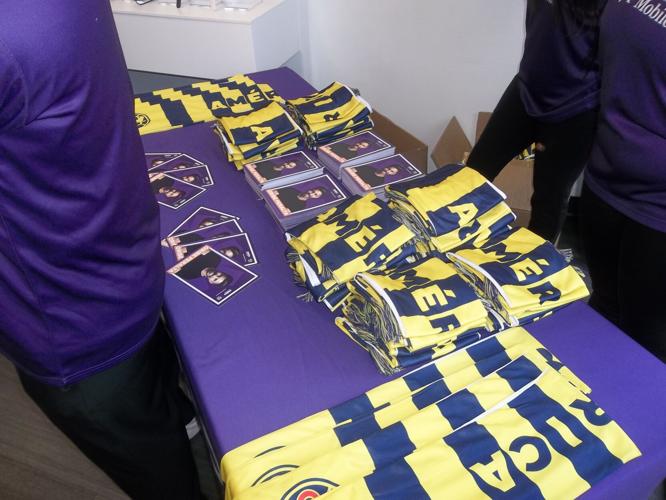
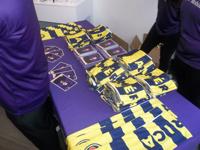

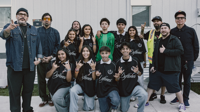






(0) comments
Welcome to the discussion.
Log In
Keep it Clean. Please avoid obscene, vulgar, lewd, racist or sexually-oriented language.
PLEASE TURN OFF YOUR CAPS LOCK.
Don't Threaten. Threats of harming another person will not be tolerated.
Be Truthful. Don't knowingly lie about anyone or anything.
Be Nice. No racism, sexism or any sort of -ism that is degrading to another person.
Be Proactive. Use the 'Report' link on each comment to let us know of abusive posts.
Share with Us. We'd love to hear eyewitness accounts, the history behind an article.